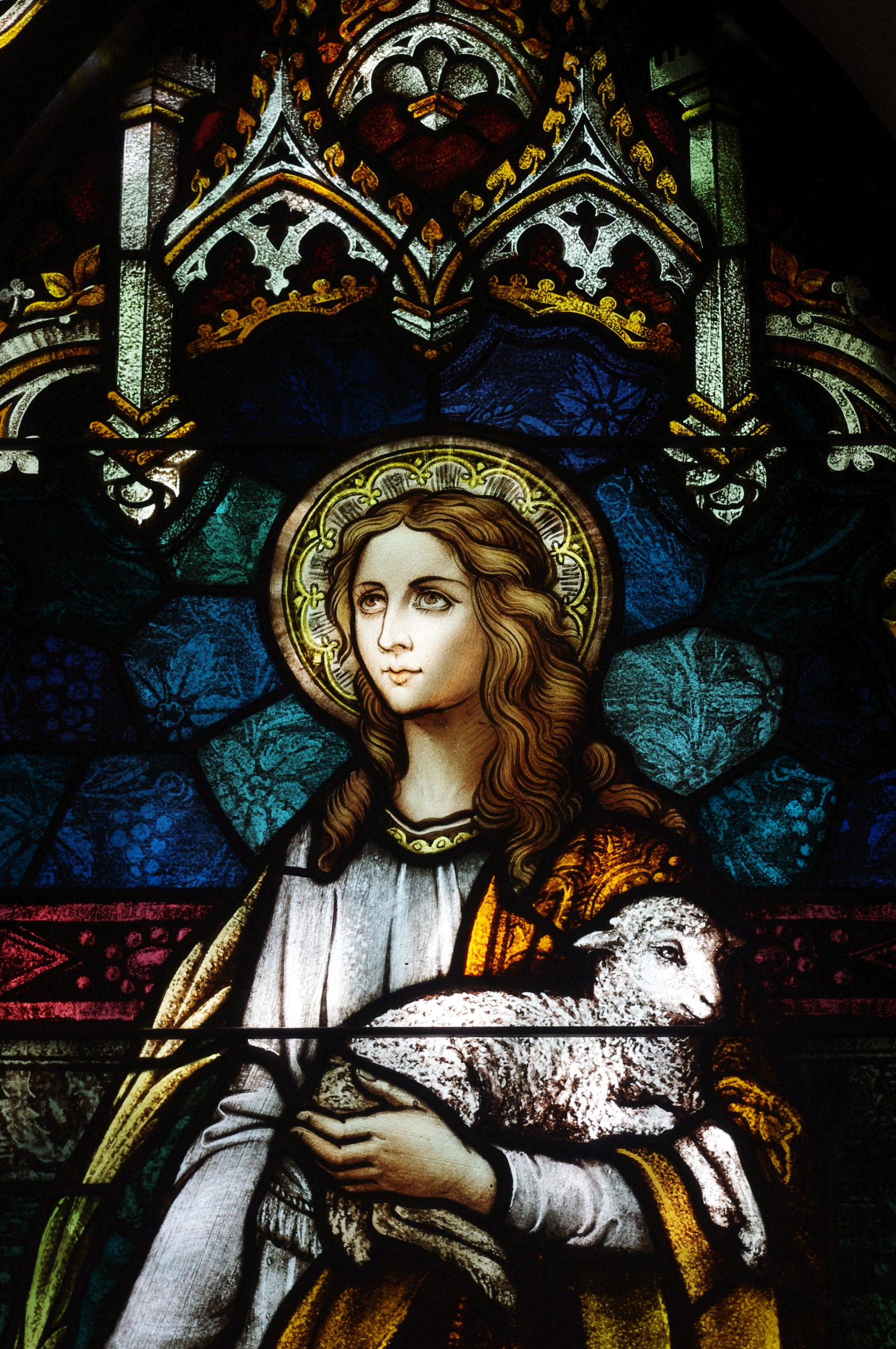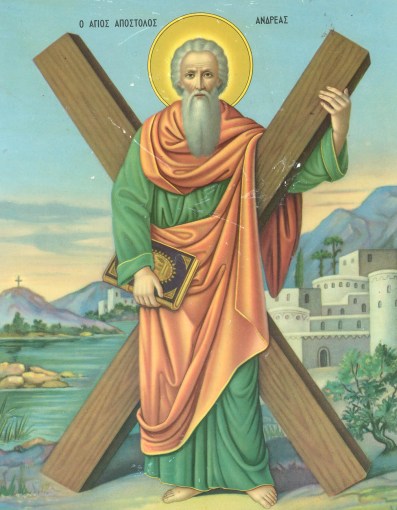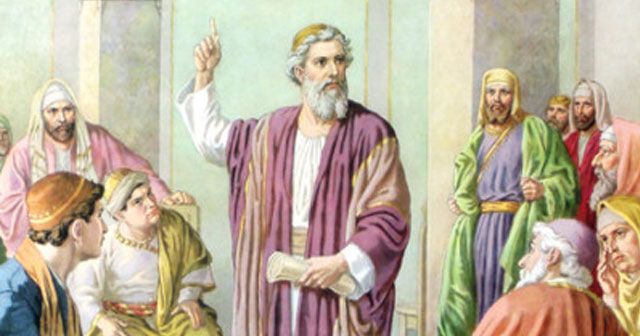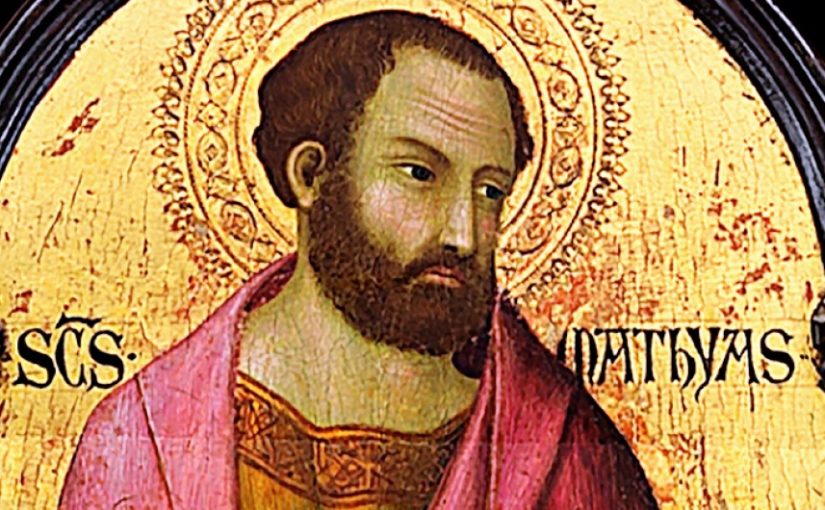Today’s readings
For the early Apostles and disciples, today’s feast had to be a kind of “now what?” experience for them. Think about what they’ve been through. Their Lord had been betrayed by one of their friends, he had been through a farce of a trial and put to death in a horrible, ignoble way, they had been hiding in fear thinking they might be next, they had questioned what they were supposed to do without their Lord, and then they witness the Resurrection: Christ walks among them for a time, appearing to them and making himself known. They had seen redemption of a way of life they almost had abandoned, and now, on this feast of the Ascension, their Lord is leaving them again. In our first reading from the Acts of the Apostles, you can almost feel the amazement and desperation they are experiencing as they stare up into the heavens, incredulous that their Lord is gone, again.
So once again, God sends two messengers, two men in white garments, to set them straight. God had sent two men in dazzling garments to the women at the tomb on the day of the Resurrection as well. That time, the men reassured the women that the Lord had not been moved or stolen, but had risen from the dead. This time, the men appear to the Apostles, assuring them that the Lord would return in the same way as he had just departed from their sight. Both times, it was the same kind of messengers, with the same kind of hopeful message. Go forward, don’t worry, God is in control.
One of the great themes of Catholic theology is the “already, and not yet.” Basically, that means that we disciples of Christ already have a share in the life of God and the promise of heaven, but we are not yet there. So we who believe in Jesus and live our faith every day have the hope of heaven before us, even if we are not home yet. And this hope isn’t just some “iffy” kind of thing: it’s not “I hope I’ll go to heaven one day.” No, it’s the promise that because of the salvation we have in Christ, we who are faithful will one day live and reign with him. This gives us hope in the midst of the sorrows that we experience in this world.
Another great theme of Catholic theology is that our God is transcendent, but also immanent. Transcendent means that our God is higher than the heavens, more lofty than our thoughts and dreams, beyond anything we can imagine. Whatever we say about God, like “God is love” or “God is good” – those things only begin to scratch the surface of who God is, because God is transcendent beyond anything our limited words can describe. But our God is also immanent. God is not some far off entity that has brought the world into existence and set the events of our lives in motion and then drops back to observe things from afar. No, our God is one who walks among us and knows our sorrow and our pain and celebrates our joy. Saint Augustine said that God is nearer to us than we are to ourselves. Our God may indeed be mysterious and beyond us, but he is also the one we can reach out and touch. If that weren’t so, the Eucharist would be pretty meaningless.
As you can see, Catholic theology is generally speaking not exclusive. We are not either already sharing in the promise or not yet sharing in it, but we are “already and not yet.” Our God is not either transcendent or immanent, but both transcendent and immanent. These two great theological themes come to a kind of crossroads here on this feast of the Ascension.
Today, as Christ ascends into heaven, our share in the life of God and the promise of heaven is sealed. We have hope of eternal life because our Lord has gone before us to prepare a place for us. If he had not gone, we could never have shared in this life. So, although Jesus has left the apostles yet again, they can rejoice because they know that the promise is coming to fulfillment. We do not possess it yet, because we are not home yet, but we share in it already, because Christ is our promise.
Today, as Christ ascends into heaven, he once again, with the Father, is transcendent, because we, along with the Apostles, can no longer see him. But he remains immanent by his promise to be with us always. Again, I will quote St. Augustine who said of Christ that “He did not leave heaven when he came down to us; nor did he withdraw from us when he went up again into heaven. The fact that he was in heaven even while he was on earth is borne out by his own statement: No one has ever ascended into heaven except the one who descended from heaven, the Son of Man, who is in heaven.” St. Augustine teaches that the notion of time is that everything is present to God all at once. This explains how our celebration of the Eucharist in a few minutes brings us to Calvary at the moment when Jesus gave his life for us. And it explains how Jesus can ascend into heaven and yet remain among us. Time is a limitation for us humans, but not for God who created time in the first place.
All of this theology can be heady stuff, but what it boils down to is this: because Jesus died, rose from the dead, and ascended into heaven, we now have the hope of heaven and of sharing in the very life of God. Even though we do not possess heaven yet, we know that it belongs to all who have faith in Christ and live that faith every day. And even though we do not see Jesus walking among us, he is still absolutely present among us and promises to be with us forever. The preface to the Eucharistic prayer which I will sing in a few minutes makes this very clear; it says:
Christ, the mediator between God and humanity,
judge of the world and Lord of all,
has passed beyond our sight,
not to abandon us but to be our hope.
Christ is the beginning, the head of the Church;
where he has gone, we hope to follow.
Jesus, having explained the Scriptures to his Apostles yet again, tells them “You are witnesses of these things.” And so they don’t have the luxury of just standing there, staring up into the sky for hours, dejected and crushed because the One who had been their hope had disappeared. No, as the Gospel tells us today, they “returned to Jerusalem with great joy, and they were continually in the temple praising God.” They are witnesses, “clothed with power from on high,” and they must be filled with the hope and joy of the resurrection and ascension of the Lord.
We disciples are witnesses of these things too. We must witness to a world filled with violence and oppression and sadness that our God promises life without end for all those who believe in him. And we have that hope already, even though not yet. We must witness to a world languishing in the vapidity of relativism and individualism and New Age Oprah and Dr. Phil philosophy that it is Jesus Christ, the Lord of All, who is one with us in heaven, and present among us on earth, who fulfills our hopes and longings and will never leave us. We must be witnesses to all these things, living with great joy, continually praising God because, as our opening prayer said so eloquently, Christ’s “ascension is our glory and our hope.” We too might hear those men in dazzling white garments speak God’s words of hope to us: go forward, don’t worry, God is in control.





You must be logged in to post a comment.